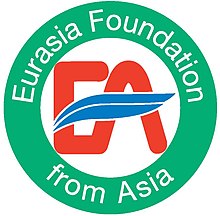
Abstract
The distributed memorial-scape of ‘comfort women’ statues: the creation of transnational shared visual culture
In December 2011, a statue of a comfort woman (also often referred to as a ‘Statue of Peace’) was erected in front of the Japanese Embassy in Seoul in honour of the 1000th weekly Wednesday Civic Rally— a long-lived social movement which has called for an official apology and compensation for the Korean victims who suffered sexual enslavement at the hands of the Japanese Imperial Army during World War II. Since then, the ‘Statue of Peace’ has become an icon and is viewed as a beloved symbol of women’s human rights, and has been placed not only in South Korea, but all across the Asian continent, Australia, Canada, Germany and the U.S. Despite their diverse locations, the statues have taken on the same symbolic expression to present a unified message. Adopting the concept of ‘distributed memorial-scape’ (Sørensen and Adriansen 2015), this paper examines how these statues have contributed to the creation of a transnational shared visual culture, and how universalised symbols can convey transnational messages and values within contested space politics. In particular, this paper analyses data from 300 questionnaire responses gathered from international and Korean respondents between Feb 2022 and Feb 2023, in order to understand how different cultural backgrounds affect the interpretation of comfort women statues, and in turn, how their different interpretations influence the formation of distributed memorial-scape.
Bio note
Hyun Kyung Lee is an Assistant Professor at Critical Global Studies Institute at Sogang University in South Korea. Her research interests include difficult heritage (colonial/Cold War heritage) in East Asia, transnational heritage networking, heritage interpretation and peace-building at UNESCO. She is the author of Difficult Heritage in Nation Building: South Korea and Post-conflict Japanese Colonial Occupation Architecture (2019). Her co-authored book is Heritage, Memory, and Punishment: Remembering Colonial Prisons in East Asia written in collaboration with her Taiwanese colleague Shu-Mei Huang (2019). Her most recent collaboration with colleagues Shu-Mei Huang and Edward Vickers, an edited volume titled Frontiers of Memory: Difficult Heritage and Cross-border Politics of Postcolonial Nationalism is published with Hong Kong University Press (2022). In addition, as a heritage professional, she is a Member of the Korean Committee for UNESCO Memory of the World, Cultural Heritage Administration of Korea.
Hyun Kyung Lee
Assistant Professor at Critical Global Studies Institute at Sogang University in South Korea.



